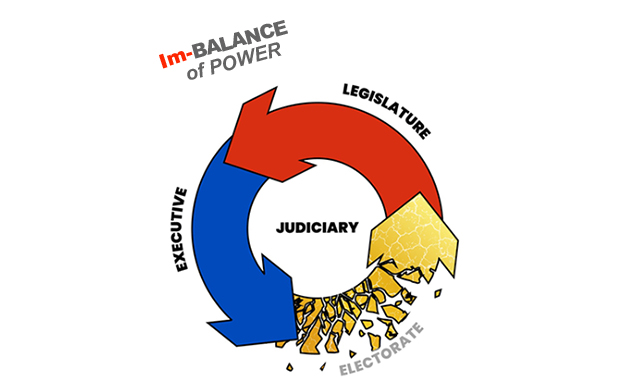


HEALTH CARE REPOSITIONING

The provision of health care in Nigeria remains one of the basic functions of the three tiers of government; the federal, state, and local government. The primary health care system is managed by the individual local government areas (LGAs), with support from their respective state ministries of health as well as medical practitioners.
The primary health care has its sub-level at the village, district, and LGA. The secondary health care system is managed by the ministry of health at the state level. The tertiary primary health care is provided by teaching hospitals and specialist hospitals. At this level, the federal government also works with voluntary and nongovernmental organisations, as well as private practitioners.
Before independence in 1960, a 10-year developmental plan, spanning the period of 1946–1956, was introduced to enhance health care delivery. Several medical schools and institutions (Ministry of Health, several clinics and health centres) were developed according to this plan. By the 1980s, there had been a great development in health care—general hospitals and over 10,000 several other health centres had been introduced.
In August 1987, The federal government launched its primary health care plan but
this health care plan made little impact on the health sector, as it continued to suffer major infrastructural, and personnel deficit, in addition to poor public health management.
Although the total expenditure in health sector amounts to 4.6% GDP, financial managerial competency, besides inadequate funding, remains a major problem.
As an effort by the federal government to revitalise the worsening state of health, the Nigerian health insurance scheme (NHIS) was established in 2005. However, the objectives and functions of the NHIS according to present review have hardly attained any height as health care delivery continues to be limited, inequitable and does not meet the needs of the majority of the Nigerian people. This is indicative of the high infant mortality rate/poor maternal care, very low life expectancy as at 2010, and periodical outbreak of disease, as well as the long period of time spent for control of the various outbreak of diseases.
In spite of the various reforms to increase the provision of health to the Nigerian people, health access is only 43.3%. The inadequacy of the health care delivery system in Nigeria could be attributed to the peculiar demographics of the Nigerian populace. About 55% of the population live in the rural areas and only 45% live in the urban areas.
About 70% of the health care is provided by private vendors and only 30% by the government.
Over half of the population live below the poverty line, on less than the equivalent of $1 a day and so cannot afford the high cost of health care.
The few who can afford health care, also face certain difficulties such as a low response rate in times of emergency.There's also the matter of false diagnosis due to the inadequacies in the equipments used for record keeping and tracking in our health sectors.
Not everyone is privileged to afford private health care as aforementioned and even in the cases of a few privileged people who can afford a private family doctor, there's the matter of unforseen contingencies for instance,If a diabetic person was to be involved in a car accident outside his or her area of residence, and happens to be in need of emergency treatment, the emergency team could unwittingly administer a type of treatment that might put such a person at more risk than actually save the person.
The way forward in improving our health sectors would be to address the Several flaws and technological challenges in the health care delivery system, such as developing an efficient and effective medical record system. We can have The way forward in improving our health sectors would be to address the Several flaws and technological challenges in the health care delivery system, such as developing a efficient and effective medical record system. We can have every person carrying a National ID featuring a data chip that locally stores his/her medical history, specially encrypted and only readable from specialised reader gadgets that are strictly licensed to relevant medical professionals.This would go along way in preventing the harm of mis-diagnosis which could sometimes kill faster than the actual ailment.With this improved technology, medical personnels would be able to see the primary medical history of each patient, especially in a case of emergency when such a person is unconscious or too disoriented to provide this information on their own, and thus be able to avoid certain treatments that might be detrimental to the patient.
NAFDAC QR codes should be made available to protect customers from purchasing expired and low quality medical products which can be dangerous to their health, from private pharmacies and over the counter drugstores. The practice of verifying the authenticity and shelf-life of drugs before purchase should be definitely be promoted and people highly sensitised about it.
On another note, there should be government support, incentives and initiatives to promote private health care developments. Carefully drawn initiatives that will go a long way to subsidise primary health care delivery, especially in the rural areas.This can be done by availing loans for the establishment of more private PHCs, pharmacies and medical outreaches.
A well developed and effective Management and information system (MIS), would equally go a great length in improving the medical sector.In fact, the application of this advanced technological management system would have immensely done a lot to improve the medical sector and eradicate the past difficulties experienced in the sector as most of these difficulties could have been easily averted through an adequate MIS, which is supposed to be the first line of approach to developing the Nigerian health care system.
Literature data reports huge developments of Management Information systems (MIS) in Europe and most especially in the United States in the last few decades. For instance, the MediSys is adapted and used by 11 national public health care system of Europe and 4 supranatural organizations, including World Health Organization and Euro-Surveillance.
MIS systems have been used to combat and effectively monitor the outbreak of communicable diseases and bio-attack.One of the most advanced MIS systems used today is the BioWatch which is presently installed in 30 US cities to constantly monitor bio-threats.
Practically, no attention is given to surveillance systems in Nigeria. Hence, a major shortcoming of the Nigerian health care system is the absence of adequate MIS systems to track disease outbreaks, mass chemical poisoning, and so on.The huge problems encountered by the Nigerian health care system could partly be due to the absence of MIS system which holds the key to successful medical leadership, as well as health care delivery.
Hence, there is necessity to setup a model of MIS systems for action to suit the interest of the Nigerian people.
Furthermore, recent study suggests that if managed well, the National Health Insurance Scheme (NHIS) could be a useful ground for good health care delivery with about a 95 percent inclusion rate in general.
To achieve success in health care in this modern era, a system well grounded in routine surveillance and medical intelligence as the backbone of the health sector is necessary, besides adequate management couple with strong leadership principles.




(0) Comment